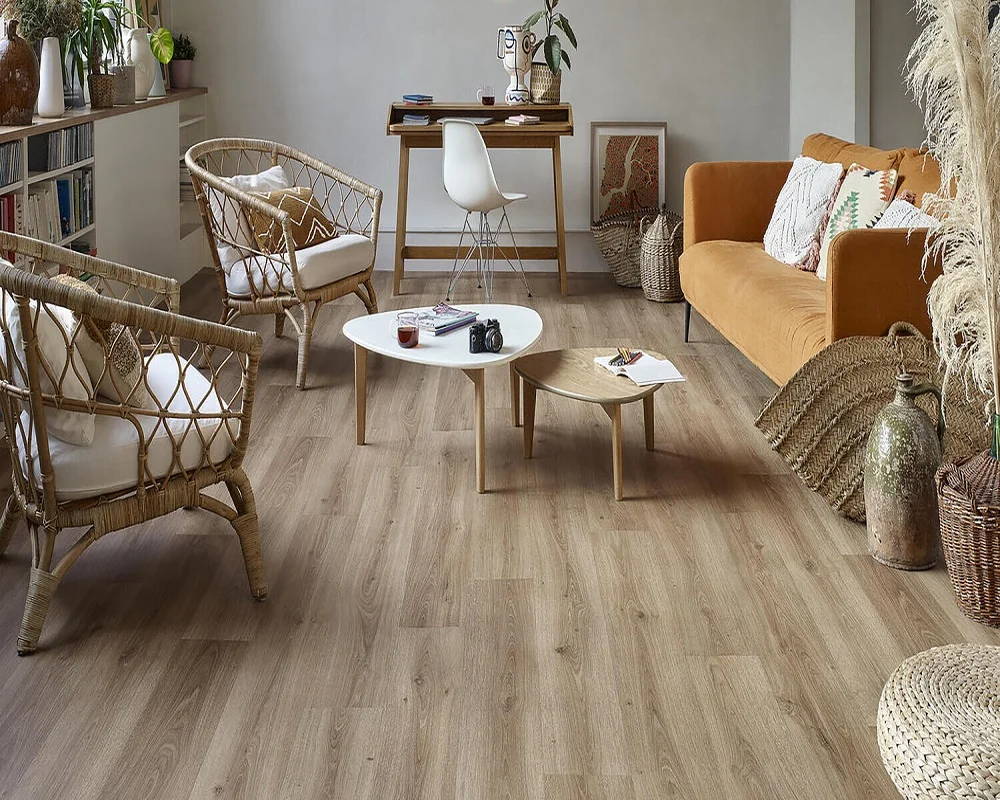FAQ
A: Yes, waterproof flooring is suitable for various rooms, including kitchens, bathrooms, basements, laundry rooms, and even high-traffic areas like entryways. Its water resistance makes it an ideal choice for areas prone to moisture.
A: Cleaning waterproof flooring is simple. Regular sweeping or vacuuming, along with occasional mopping using a mild cleaner, is usually sufficient to keep it clean. Avoid using excessive water and harsh cleaning agents, as they may damage the flooring.
A: Absolutely! Waterproof flooring is an excellent option for pet owners. It can withstand accidents, spills, and scratches caused by pets, making it a durable and practical choice for homes with furry friends.
A: Yes, many waterproof flooring options offer realistic replications of natural materials. You can find vinyl planks or tiles that closely resemble hardwood, as well as waterproof laminate or tile flooring that mimics the beauty of natural stone.
A: The longevity of waterproof flooring depends on various factors, including the quality of the product, proper installation, and maintenance. With proper care, waterproof flooring can last for many years, often exceeding the lifespan of traditional flooring options.
A: While some homeowners choose to install waterproof flooring themselves, professional installation is recommended for optimal results. Certified installers have the expertise, tools, and knowledge to ensure proper installation, minimizing the risk of future issues.
A: In some cases, it is possible to install waterproof flooring over existing flooring, but it depends on the condition and type of the existing floor. It’s best to consult with a professional installer to assess the suitability of installation over your specific flooring.
A: The cost of waterproof flooring can vary depending on the type, brand, and quality. While some waterproof flooring options may have a slightly higher upfront cost, they often provide long-term savings due to their durability and low maintenance requirements.





